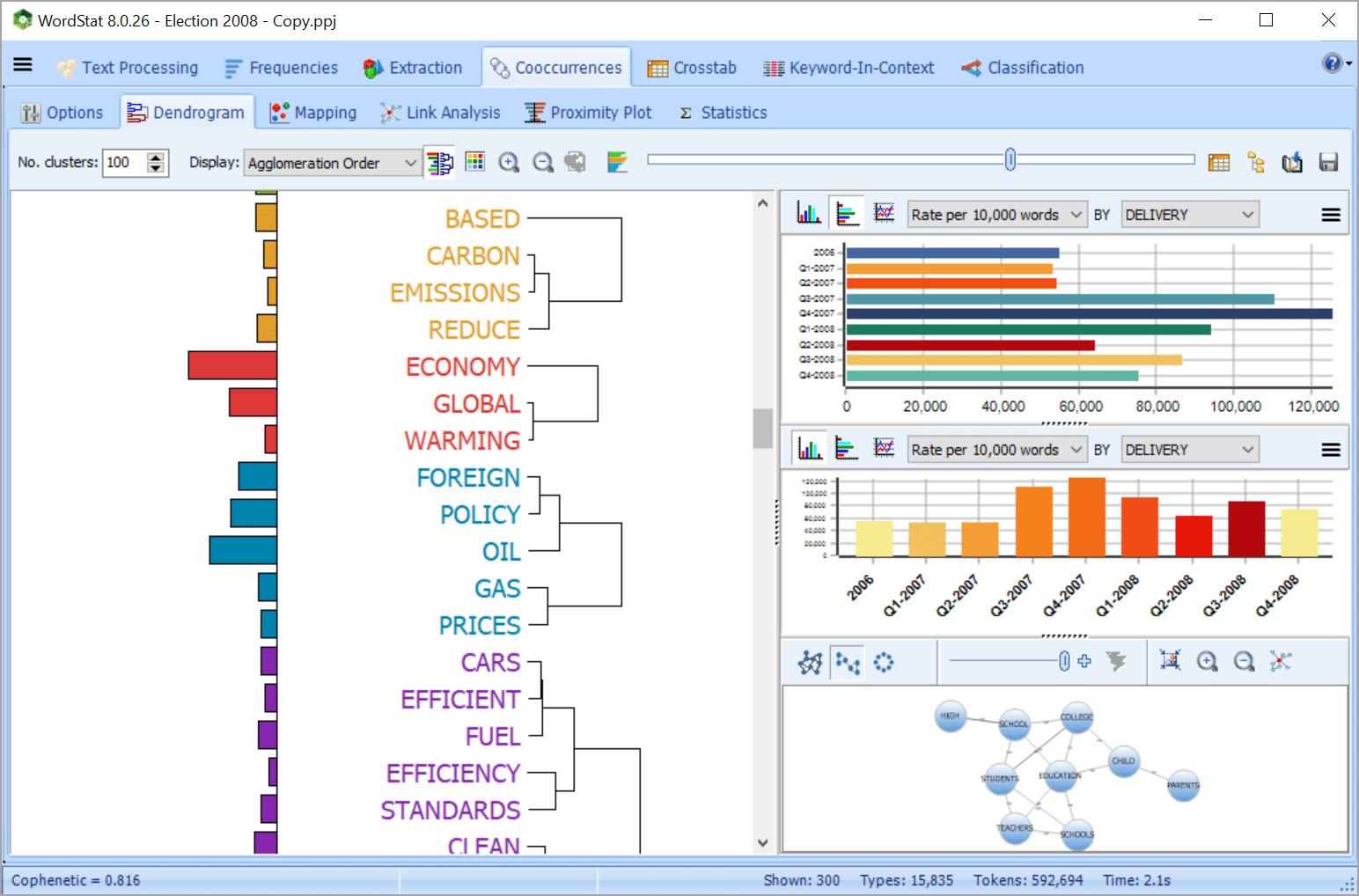- AquadAquad is a platform developed in Germany (you will have to translate the website, which is also in German) that supports text of any kind, audio, video, and image files. There is a plugin available to use with R, the open source statistical analysis software.
- Coding Analysis Toolkit (CAT)CAT was designed to utilize keystrokes rather than the mouse as a coding assistant. CAT can import an ATLAS.ti project to parse quantitatively, though it has a coding mechanism built into itself as well. CAT won the Best Research Software award from the Information Technology & Politics in the American Political Science Association in 2008. CAT is Web based.
- CompendiumCompendium models itself as an application to visualize the connections between information and ideas. It is very visually based and offers similar functionality as most CAQDAS platforms. Please note: the program and code are still available, but are no longer maintained as of 2014.
- qcoderqcoder is an R library for qualitative analysis hosted on GitHub.
- QDA Miner LiteA 'lite' version of the proprietary software, QDA Miner Lite has a slightly limited functionality. You can still perform the basic functions of the full version but don't have some of the more advanced options. You can see all the differences in the side by side comparison.
- RQDARQDA is another package from the exciting R Project, a statistical analysis platform that has developed a constantly growing community of users and developers that is designing all sorts of software for use in data analysis. What a plugin to such a power statistics program means is that implementing quantitative data to your project will be seamless and effective.
- TaguetteTaguette is an open source qualitative analysis program that works on Windows, Mac, and Linux computers, as well as in-browser. A quick tutorial on how to get started can be found at their website, linked above. You must have Python 3 and Calibre on your computer in order to successfully download and use Taguette. The online version requires you to register for a free account.
- Weft QDAWeft was a project by a student who was fed up with the pricing of many of the proprietary software providers. Weft provides solid coding capabilities of text in addition to full text search using Boolean operators (AND, OR, NOT). There is no visualization capabilities. Unfortunately, Weft has been abandoned, so there is no support from the developers. Probably best used by researchers only looking to analyze text.
- CAQDAS (Computer Assisted Qualitative Data AnalysiS) Networking Project. Software-focused site by the Sociology Department at the University of Surrey. Includes help on choosing software and news on the most popular packages. Atlas.ti, DEDOOSE, DRS, f4Analyse, HyperRESEARCH, MAXQDA, MiMeG, NVivo, Transana, QDA Miner, QUIRKOS, weQDA.
- The qualitative data platform for insights-driven organizations. Single source of truth for all of your qualitative data. Spend less time managing and editing media files. We automate the heavy lifting of transcribing and preparing media files for analysis and tagging, so you can focus on generating meaningful insights.


Qualitative Data Analysis Software Open Source

Qualitative Data Analysis Software Open Source Code
RDQA is a R package for Qualitative Data Analysis, a free (free as freedom) qualitative analysis software application ( BSD license). It works on Windows, Linux/ FreeBSD and Mac OSX platforms. RQDA is an easy to use tool to assist in the analysis of textual data. At the moment it only supports plain text formatted data. Taguette Taguette is an open source qualitative analysis program that works on Windows, Mac, and Linux computers, as well as in-browser. A quick tutorial on how to get started can be found at their website, linked above. You must have Python 3 and Calibre on your computer in order to successfully download and use Taguette. I love open-source software, and use it everyday. However, I feel that at the moment most of the qualitative analysis software options are lacking in some important way. Realistically, open-source software works best when the people using it are able to contribute and add to the development of the code.